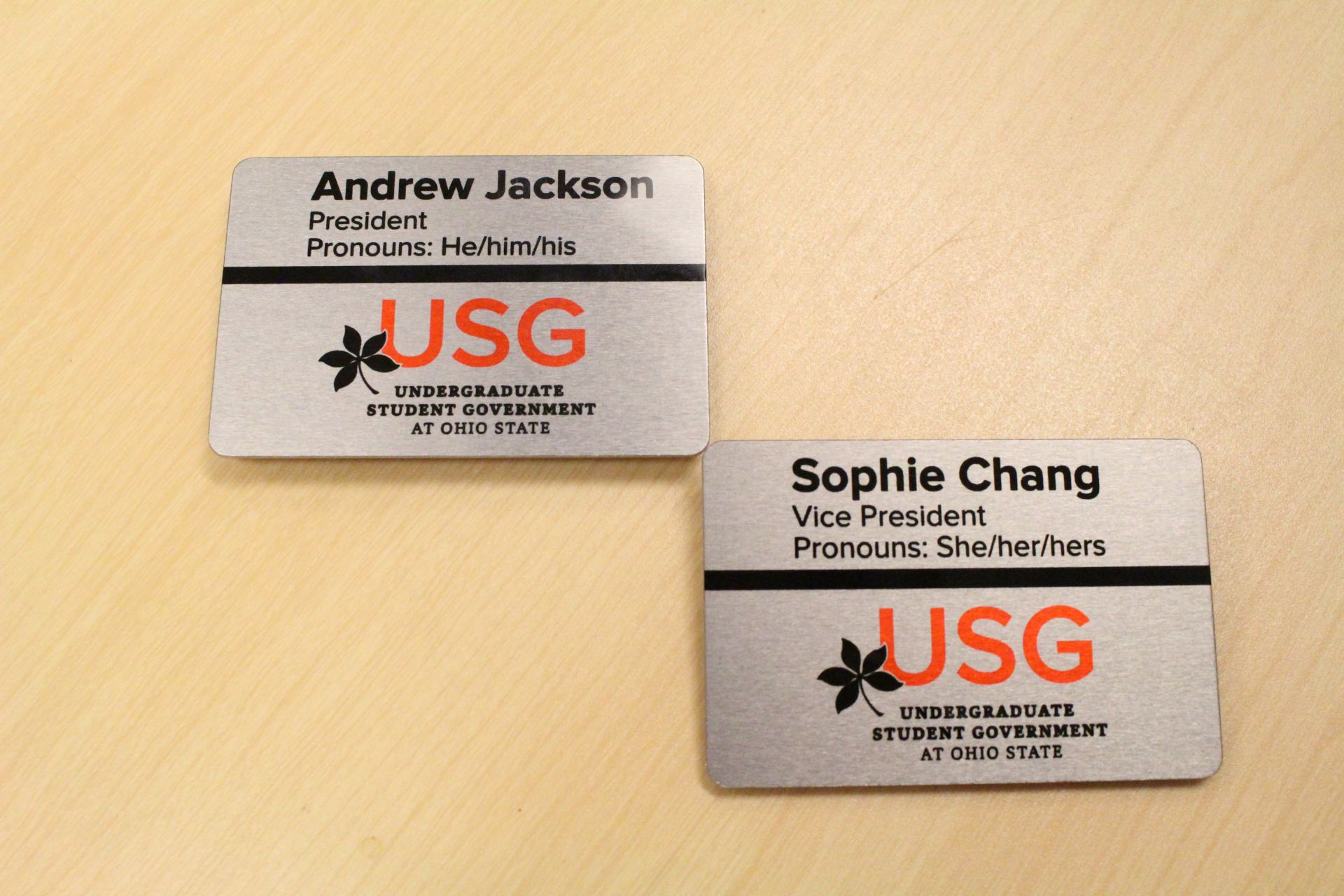
Undergraduate Student Government’s 50th General Assembly added new inclusivity measures this year, including a five minute prayer break in their weekly Wednesday meetings and adding their preferred pronouns on their nametags. Credit: Teresa Cardenas | Lantern Reporter
Undergraduate Student Government’s General Assembly added new inclusivity measures this year, including a five-minute prayer break in its weekly Wednesday meetings and the addition of each member’s preferred pronouns to their nametags.
The break will allow any senator to use the time for prayer of any faith, and the pronouns were added to support students’ gender identities, according to USG’s senior staff.
The first change came after general assembly’s second meeting in April, when a group of senators asked Sophie Chang, USG vice president and fourth-year in environment, economy, development and sustainability, to permanently add a break for prayer.
Amraha Nadeem, a second-year in neuroscience and the commuter senator who also acts as the secretary, said her prayer time changes every day, but the meetings sometimes interfere.
“I think it is important to proactively add it to the agenda because that way everyone knows to expect it,” Nadeem said. “We don’t have to motion to go into a five-minute recess; it’s already there.”
The prayer time aligns with the sunset, one of the five times in which Muslims pray each day. Nadeem, who is a Muslim, said she was glad that Chang was accepting of the change.
Part of Chang’s role as vice president is to set the weekly agendas. She said she wasn’t aware of the conflict between the prayer time and the meeting prior to the senators’ request.
Chang said she decided a prayer built into the agenda would be more accommodating for all senators.
Tony Buss, Chang’s senior counselor and a fifth-year in English, attributed her decision to the changing characteristics of the general assembly.
“As our body has diversified, we’ve changed with that so we added [the break for prayer],” Buss said. “It’s worked very well so far.”
Chang said the addition of pronouns on nametags also came as a request from USG senior staff, who noticed that Student Life employees began to include their pronouns in their email signatures and nametags in the 2016-17 academic year.
Adding pronouns to nametags helps senators inform others how they identify their gender, said Alex Leeder, the USG director of diversity and inclusion and a fourth-year in theater.
“Obviously it’s in efforts to be inclusive and more conscious of asking about people’s pronouns instead of assuming people’s pronouns,” Leeder said.
While it is not required in USG, only one of the 39 senators declined to include his pronouns.
Following Jackson and Chang’s campaign platform for a student government more representative of the undergraduate student body and more supportive for inclusivity, these changes are a first of its kind for USG.
Last year’s General Assembly did not mention a break for prayer during any of the 24 public sessions. Pronouns were not included on members’ nametags, but USG did attempt to allow students to identify their pronouns on class rosters, according to a 2016 newsletter.
Ohio State currently has a policy in place that allows students to use their preferred names on class rosters but does not have one for preferred pronouns. University of Michigan and Ohio University introduced policies that allowed for preferred pronouns to be noted on class rosters in 2016 and 2015, respectively.
“I think that USG is setting a huge precedent at Ohio State,” Nadeem said. “While many organizations advocate for diversity and inclusion, USG goes above and beyond to implement it.”


